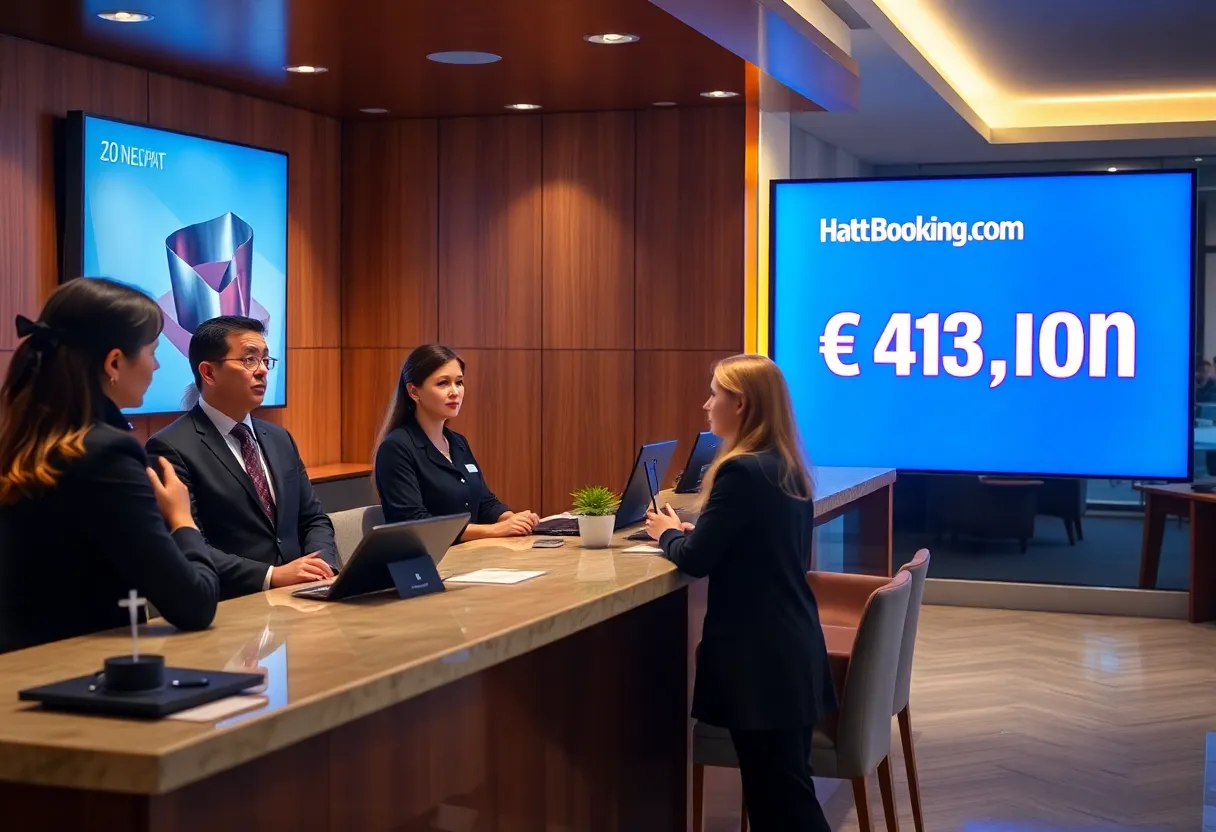News Summary
The regulatory agency in Spain has fined Booking.com over €413 million for allegedly enforcing unfair commercial conditions on hotels. This substantial penalty raises questions about the relationship between hoteliers and online travel agencies (OTAs), prompting hotels to rethink their marketing strategies and data ownership. As the digital landscape evolves, hotels are urged to adapt and focus on direct customer engagement for better outcomes.
Spanish Regulatory Agency Hits Booking.com with a Massive Fine
In a shocking turn of events, the regulatory agency in Spain has imposed a hefty fine of over €413 million on Booking.com for allegedly applying “unfair commercial conditions” on hotels. This decision has sent ripples through the hospitality industry, forcing hoteliers to rethink their strategies regarding online travel agencies (OTAs). While many hotels have often relied on OTAs to secure bookings, they are now recognizing the complexities and challenges that come with such partnerships.
The Love-Hate Relationship with OTAs
Hoteliers have found themselves in an oddly ambivalent position with OTAs. On the one hand, these platforms are undeniably effective at capturing bookings. On the other hand, many hotels express frustration about the way OTAs control guest data. This control often creates a barrier for hoteliers trying to engage directly with their customers. As a result, the focus is shifting towards utilizing technology in gathering and analyzing guest data more effectively, which could yield better operational and financial outcomes for hotels.
Taking Control of Customer Interactions
With the new fine, there’s a growing encouragement among hoteliers to lessen their dependency on third-party platforms. By taking command of customer conversations, hotels can start to foster more meaningful relationships with their guests. This includes understanding their preferences and creating personalized experiences that lead to loyalty.
The Evolving Digital Landscape
The European Union’s Digital Markets Act is poised to shake things up even further in the digital marketing and distribution space. As laws change, hotels need to adapt their strategies. One common roadblock? Legacy technology that keeps data siloed, making it hard for hoteliers to achieve a comprehensive understanding of their guests’ needs.
Conversations at Phocuswright Europe
Discussions at the recent Phocuswright Europe event highlighted an urgent need for hoteliers to invest in technology. This isn’t just about convenience; it’s about improving guest experiences and ultimately, retaining more customers. Hoteliers are being advised to critically evaluate their digital marketing spend. With 29% of hotel marketing budgets going towards social media—which only yields 1% of total marketing revenue—it’s clear that businesses need to find smarter ways to allocate resources and achieve better returns on their investments.
Redirecting Marketing Budgets
Experts now suggest that hotels consider more effective digital strategies. For example, pay-per-click (PPC) advertising allows targeted marketing that speaks directly to specific market segments. Even influencer marketing is under the microscope. Though it’s commonly effective for luxury hotels, its impact on limited-service hotels is less clear. Hoteliers are thus re-evaluating how much they rely on these influencers.
Harnessing AI and Data Ownership
Another crucial aspect in gaining a competitive edge is ownership of first-party data. This data is invaluable for personalized marketing and customer engagement. Hotels are also encouraged to improve their data collection efforts, helping them build comprehensive guest profiles for better targeting.
Strategic Integrations and Business Goals
The integration of sales, marketing, and revenue management strategies is evolving, and it’s important for hotels to reflect this understanding in their approaches. As the landscape shifts, aligning digital marketing strategies with business goals is becoming more vital. Each marketing dollar spent should contribute to measurable outcomes to justify its expense.
The Shift Towards Direct Bookings
Post-COVID, the booking dynamic has experienced significant changes. Initially, direct bookings surged as travelers prioritized safety. However, as the world reopens, there’s a noticeable drift towards OTAs for better rates. Meanwhile, Google is carving out its territory as a dominant force in the travel search space, transforming how consumers go about booking accommodations.
Focusing on Quality Content
As hoteliers navigate this complex landscape, focusing on high-quality content creation paired with targeted paid distribution may hold the key to successful marketing. By optimizing their strategies, hotels can improve their performance metrics and enhance overall business health.
In this ever-evolving environment, hotels must proactively adapt to not only survive but thrive in a landscape that is becoming more competitive by the day.
Deeper Dive: News & Info About This Topic
HERE Resources
Additional Resources
- Phocuswire: Booking.com Fine Highlights Hoteliers’ Challenges
- Forbes: The Evolution of Hotels in the Post-COVID Era
- Skift: Reimagining Hotel Marketing Strategies Post-COVID
- Hospitality Net: What Hoteliers Need to Know About Future Bookings
- Hospitality Tech: What Hotels Need to Know About Digital Marketing in 2023
Author: STAFF HERE Chapin
CHAPIN STAFF WRITER The CHAPIN STAFF WRITER represents the experienced team at HEREchapin.com, your go-to source for actionable local news and information in Chapin, Lexington County, and beyond. Specializing in "news you can use," we cover essential topics like product reviews for personal and business needs, local business directories, politics, real estate trends, neighborhood insights, and state news affecting the area—with deep expertise drawn from years of dedicated reporting and strong community input, including local press releases and business updates. We deliver top reporting on high-value events such as the Chapin Christmas Parade, Fourth of July Celebration, and the Chapin Fall Festival. Our coverage extends to key organizations like the Chapin Chamber of Commerce and the Lexington School District One, plus leading businesses in retail and recreation that power the local economy such as Lake Murray Tourism and the Chapin Visitor Information. As part of the broader HERE network, including HEREaiken.com, HEREbeaufort.com, HEREchapin.com, HEREcharleston.com, HEREclinton.com, HEREcolumbia.com, HEREgeorgetown.com, HEREgreenwood.com, HEREgreenville.com, HEREhiltonhead.com, HEREirmo.com, HEREmyrtlebeach.com, HEREnewberry.com, HERErockhill.com, HEREspartanburg.com, HEREaustin.com, HEREcollegestation.com, HEREdallas.com, HEREhouston.com, and HEREsanantonio.com, we provide comprehensive, credible insights into South Carolina's dynamic landscape.







